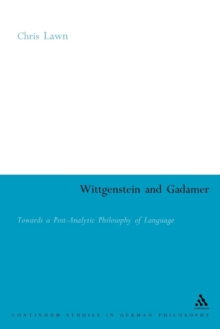
Berkeley's Philosophy of Spirit : Consciousness, Ontology and the Elusive Subject PDF
by Bettcher Talia Mae Bettcher
Part of the Continuum Studies in British Philosophy series
Description
This book tackles some of the deepest problems in Berkeley's philosophy by providing a fresh interpretation of Berkeley's core ontological doctrines and their relationship to his views about self-consciousness. Berkeley, the author argues, is led to adopt a new model of self-consciousness because he rejects the basic metaphysics of many of his predecessors.
This new model of self-consciousness provides the foundation for Berkeley's own ontological framework. Bettcher's interpretation provides answers to long-standing questions about Berkeley's traditionally derided views about mind, offers an elegant treatment of Berkeley's core metaphysical views more generally, and illuminates Berkeley's innovative attempt to address the important philosophical and theological issues of his day. Moreover, Bettcher shows the importance of Berkeley's philosophy of spirit to the perplexing thesis that the subject of experience is somehow mysteriously elusive. She argues that Berkeley can be seen as a transitional figure with respect to the older philosophical concept of 'subject' (as a metaphysical supporter of properties) and the more modern philosophical concept of 'subject (as opposed to 'object').
She provides a re-reading of Hume's famous claim that when he turned reflection upon himself, he could perceive only perceptions and sheds new light on the notion of a 'subject of experience'. The book will be of substantial interest both to Berkeley scholars and to philosophers concerned with contemporary discussions of self-consciousness.
Information
-
Download - Immediately Available
- Format:PDF
- Pages:182 pages
- Publisher:Bloomsbury Publishing
- Publication Date:23/04/2007
- Category:
- ISBN:9781441164490
Information
-
Download - Immediately Available
- Format:PDF
- Pages:182 pages
- Publisher:Bloomsbury Publishing
- Publication Date:23/04/2007
- Category:
- ISBN:9781441164490










